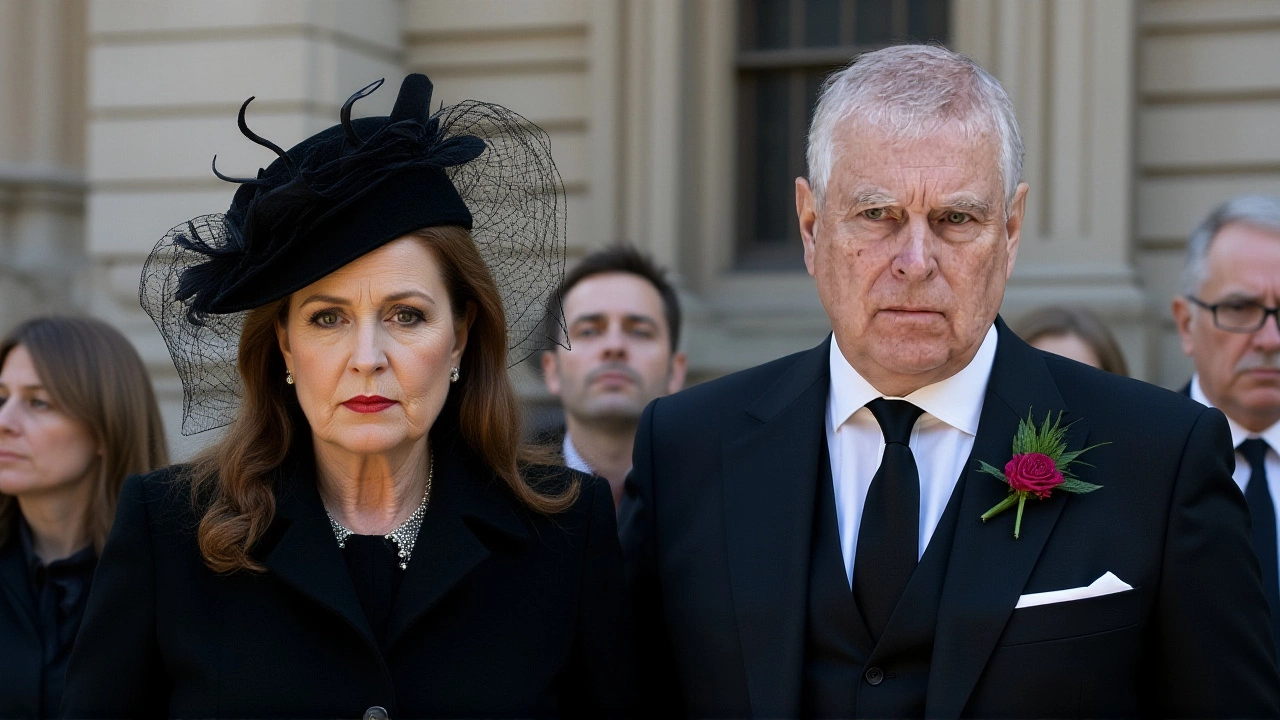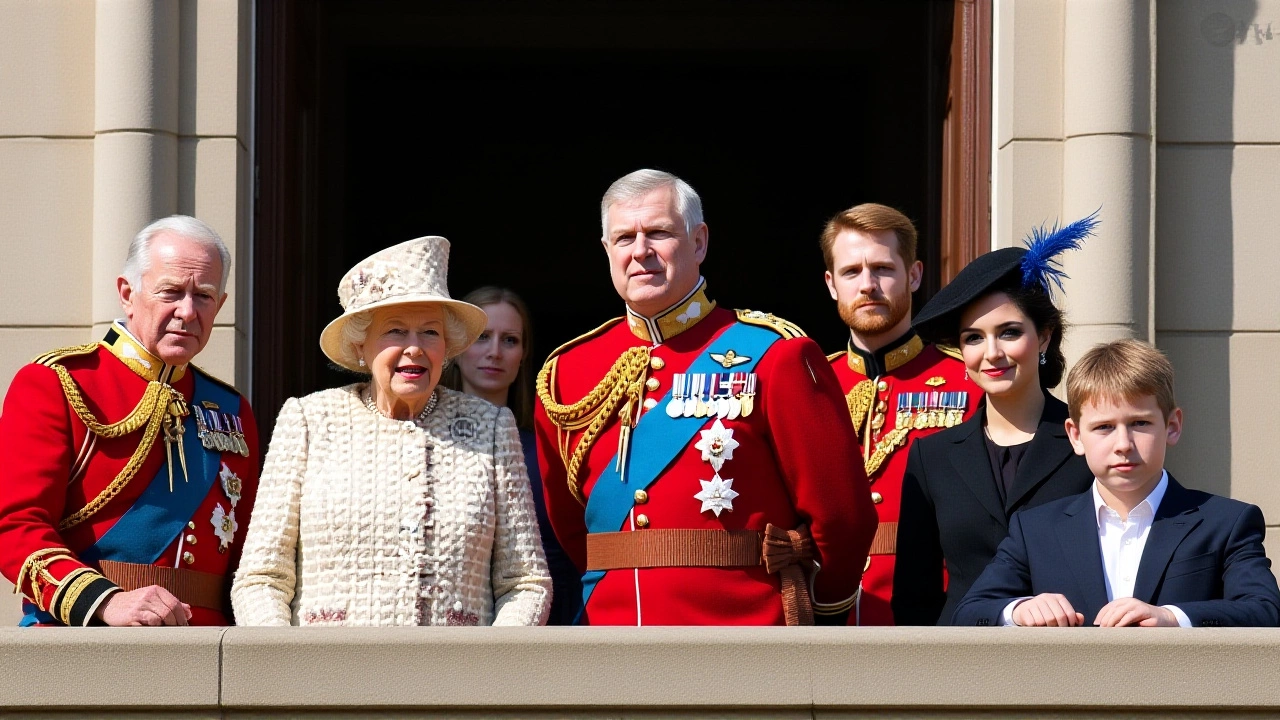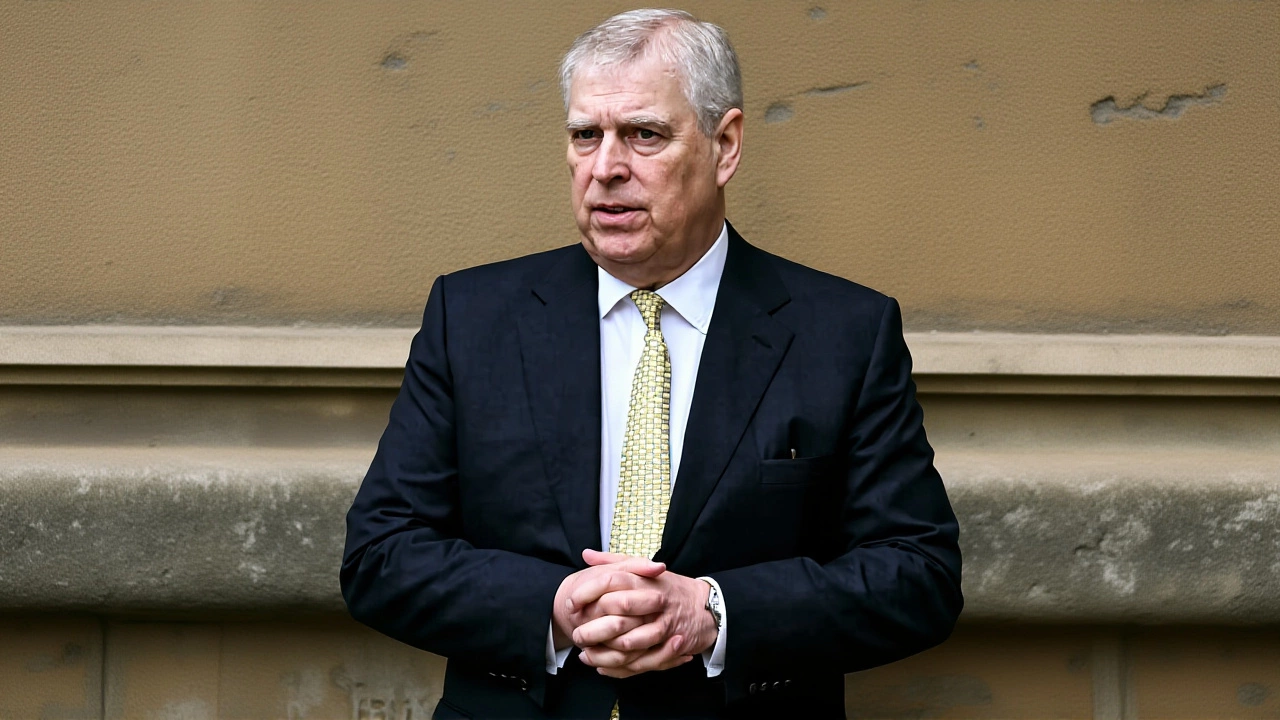When Prince Andrew, Duke of York and the British royal family announced on that he was relinquishing all his titles and honours, the nation watched the live broadcast from Isleworth, London. The breaking story unfolded on Sky News at 10:00 PM GMT, with the anchor reading the headline verbatim: “Prince Andrew announces he’s given up his royal titles and honours, including Duke of York.”
Historical backdrop: titles that have spanned generations
To understand the shockwaves, you have to go back to March 23 1986, when Queen Elizabeth II created the dukedom for the second son of the monarch. The Duke of York title has traditionally been reserved for the king’s second male child – a lineage that includes Prince Andrew’s great‑grandfather, Prince Albert, Duke of York (later King George VI). Over the decades the title has been a symbol of royal duty, naval service, and, more recently, controversy.
Prince Andrew’s military résumé reads like a résumé for a senior officer: a former Royal Navy helicopter pilot, a former special forces liaison, and a former UK trade envoy. Yet the shadow of a 2019 civil lawsuit, accusations of sexual misconduct, and a 2022 interview that drew worldwide criticism have kept him in the headlines for reasons other than service.
What the announcement actually said
During the ten‑minute segment, the Prince delivered a succinct statement: “Continued accusations against me are distracting from the work of the royal family. I deny all wrongdoing.” He added that the decision came after “discussions with the king,” a thinly‑veiled reference to King Charles III. No legal documents were shown, no financial settlements disclosed – just a clear, immediate termination of every royal honour he held.
The broadcast replayed the exact phrasing at 1 minute 08 seconds: “Good evening. We begin with the news breaking tonight that Prince Andrew has given up his royal titles and honours with immediate effect and will no longer be known as the Duke of York.” By 1 minute 22 seconds, the presenter confirmed the move covered “all his titles and honours,” effectively stripping the Prince of the right to use "His Royal Highness" and any associated patronages.
Reactions from the palace, the press, and the public
Within minutes, social media erupted. A hashtag #RoyalResignations trended on Twitter, gathering over 200,000 mentions in the first hour. Some royal watchers called it a “necessary step” to protect King Charles III’s agenda, especially as the monarch pushes ahead with constitutional reforms and a climate‑focused agenda.
Commentators in the UK press offered varying takes. The Sun splashed a headline that read “the band Old Duke of York,” a cheeky nod to the children’s rhyme that many readers found both humorous and biting. Meanwhile, the Daily Mirror columnist Susie Boniface (mentioned later in the Sky segment) suggested the move could be a “public‑relations lifeline,” allowing the family to re‑focus without the constant legal rattle.
Royal insiders, speaking on condition of anonymity, hinted that losing the title might also affect the Prince’s charitable trusts, which rely on patronage status for fundraising. “It’s a huge administrative shuffle,” one source said, “but it could also untie some financial obligations that were tied to his royal standing.”

Impact on the monarchy and constitutional considerations
Legal scholars point out that there is no formal mechanism for a senior royal to “renounce” titles. The Letters Patent that created the dukedom can be revoked by the sovereign, but the process usually involves Parliament. In this case, the immediate effect appears to be a royal decision executed through internal decree rather than legislative action.
For the monarchy, the timing is crucial. King Charles III has been navigating a series of scandals, Brexit‑related tensions, and public scrutiny over the royal finances. By shedding a controversy‑laden member, the palace may hope to present a leaner, more focused image ahead of the upcoming Commonwealth Heads of Government Meeting (CHOGM) scheduled for November 2025.
Constitutionally, the Prince’s loss of "HRH" status does not automatically strip him of citizenship or legal responsibilities, but it does mean he can no longer sit on certain official bodies, nor receive the diplomatic courtesies reserved for senior royals.
What comes next? Legal battles and public perception
Legal analysts expect the civil lawsuit in the United States to continue unabated. The dismissal of titles does not affect jurisdiction, but it could influence public sentiment in any future jury pool. Meanwhile, the Prince’s charitable foundations will need to re‑brand, a process that could take months.
On the public side, opinion polls taken by YouGov on 20 October 2025 show a slight dip in overall support for the monarchy – from 66 % to 62 % – with many respondents citing “ongoing scandals” as a reason. However, a separate poll by Ipsos suggested that 48 % of Britons view the Prince’s resignation as a “positive step” toward modernising the institution.
In the weeks ahead, the palace is expected to release a formal statement outlining the administrative steps required to remove the Prince’s name from official rosters, charity registries, and military affiliations. Observers will watch closely for any indication of compensation or settlement, which the current broadcast did not address.

Background: why this move matters beyond the headline
Voluntary surrender of royal honours is unprecedented in modern British history. The last comparable event was the 1992 decision by Princess Diana to step back from official duties, but she retained her titles until her untimely death. Prince Andrew’s case sets a new benchmark – a senior royal, still technically in the line of succession, choosing to shed all formal symbols of that status.
Historically, titles have been used as tools of statecraft, binding nobles to the Crown and offering a clear hierarchy. In a democratic age where the public scrutinises every privilege, the decision signals a possible shift in how the monarchy balances tradition with contemporary expectations.
Frequently Asked Questions
How does Prince Andrew’s resignation affect his charitable work?
Most of the Prince’s charities are tied to his royal patronage, meaning they enjoyed tax‑exempt status and easy access to donors. Without the Dukedom, each organisation must re‑apply for charitable registration and likely re‑brand, a process that could take several months and may impact fundraising.
What legal ramifications could follow the title relinquishment?
Giving up titles does not erase existing lawsuits. The U.S. civil case alleging sexual misconduct proceeds independently, and the Prince remains subject to any court orders. However, the loss of "HRH" may influence public perception and could be referenced in future defamation claims.
Will King Charles III face political fallout from this decision?
Political leaders have largely stayed neutral, but opposition parties are already using the episode to argue for a reduced royal budget. The King's involvement in the decision may be seen as a pragmatic move to protect the institution, though critics argue it shows reactive rather than proactive governance.
How does this event compare to previous royal scandals?
Unlike past controversies where royals retained titles while facing public criticism, Prince Andrew’s complete renunciation is unique. The only comparable instance was Princess Margaret’s withdrawal from public duties in the 1970s, but she kept her titles. This sets a new precedent for how the monarchy handles internal crises.
What are the next steps for the royal household regarding protocol?
The palace will likely issue an official communiqué detailing updates to the Order of the Garter, military affiliations, and the royal calendar. Additionally, any future engagements that listed Prince Andrew as a host will be reassigned, and a formal amendment to the Letters Patent may be filed.
